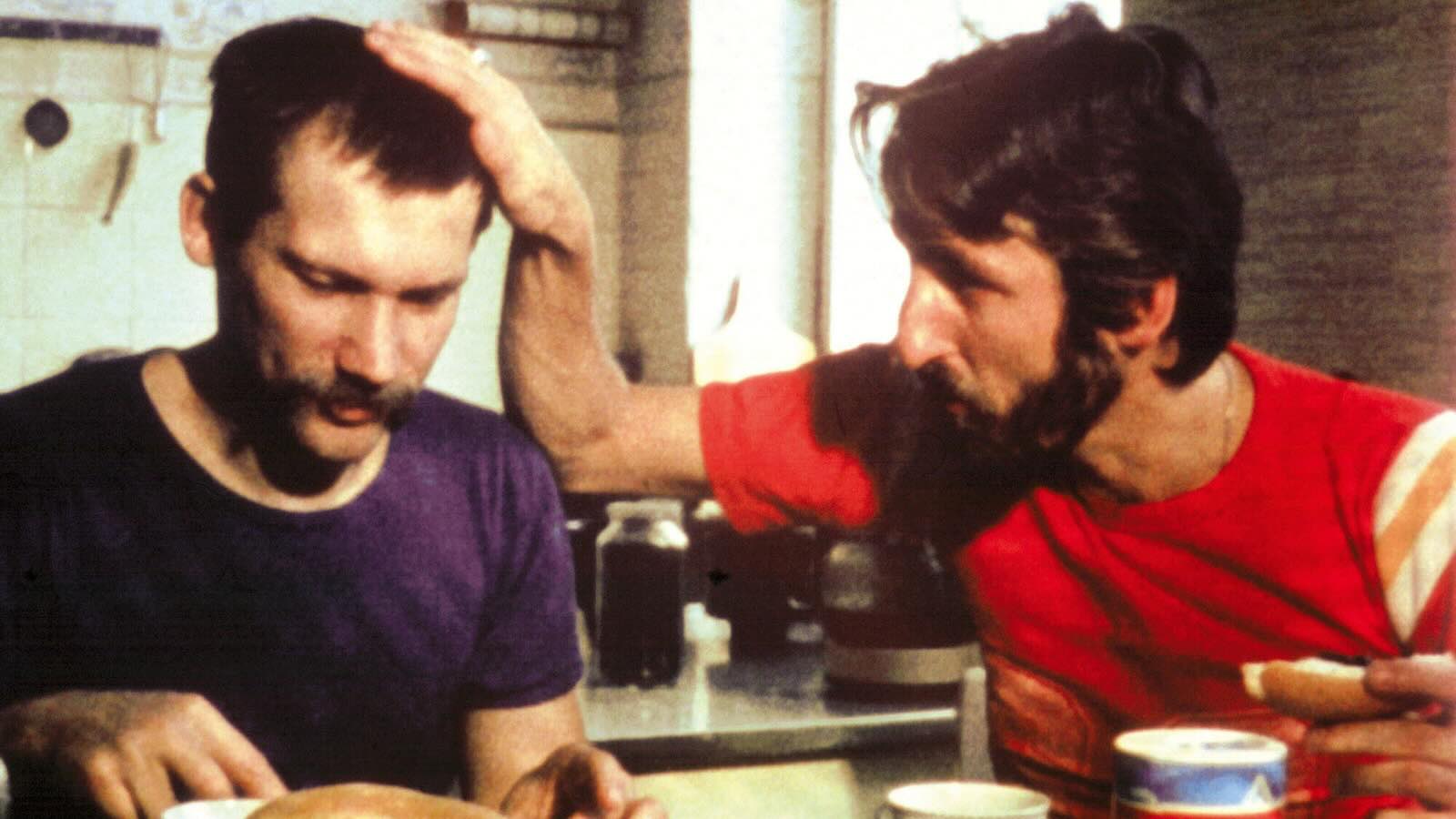“Can we do anything but simply repeat ourselves?” Frank, the protagonist of Frank Ripploh’s Taxi zum Klo (1981), asks himself in the mirror as he washes off a face of stale makeup. He’s just returned from teaching his elementary school class in a pink tulle Arabian dancer costume, having reported to work directly from the West Berlin drag ball. At the ball he flirted and partied, kissing another guy in front of his boyfriend, Bernd. A kind soul whose life’s desire is to live on a farm, Bernd has grown tired of Frank’s infidelities and his aimless quest for kicks. Frank, coupled or otherwise, regularly roves the city, a sixth sense for sex and mischief leading him to public bathrooms, bars, and bathhouses. His appetite for hook ups is ravenous: he grades papers while he guards a heavily-trafficked glory hole, picks up a gas station attendant on the way to work, and takes a taxi to a cruising spot from the hospital during a brief illness. But Frank loves Bernd. As he stares in the mirror, he contemplates giving up his lifestyle to commit more fully to his boyfriend—or to commit suicide instead.
Frank is played by Ripploh, Taxi zum Klo’s writer and director, and the film is essentially a work of autofiction, drawing heavily from Ripploh’s milieu in Berlin. Ripploh himself was an elementary school teacher, who also performed in Berlin’s underground as Peggy von Schnottgenburg (some friends in the film refer to Frank as Peggy). In 1978, he was featured in an article in Stern magazine on gay life in Germany, which led to difficulties with his school’s authorities. But the dissolution of his teaching career birthed his film career. His foray into independent filmmaking allowed Ripploh to authentically represent queer experience and romance prior to AIDS without a hint of repression or oppressive morality. Taxi zum Klo, which emerged at the height of New German Cinema, a scene aflush with yearly Fassbinder releases, and an emerging international gay cinema, a roster that included Derek Jarman’s Sebastiane (1976) and Ron Peck’s Nighthawks (1978), was a hit. It impressed critics and far outperformed its budget of 100,000 Deutsche Marks, playing four shows a day for six months at the Nouvel Odéon in Paris and reportedly making a million dollars in New York.
But the film’s path to becoming a seminal work of queer cinema was rife with censorship and controversy. It was confiscated in Austria in 1981, seized by U.S. Customs upon its initial release, and required by the British Board of Film Classification to minimize images of penetration and erections. Indeed, the film features a tasting menu of unsimilated sex acts, with blow jobs, BDSM, and golden showers served up throughout. These scenes are graphic, but more playful and honest than they are slick or stylized. At one point Frank tells Bernd about the excitement of his sexual life, how just walking down the street is like an adventure where “things” can happen. “I don’t want to be Mr. Average,” he says to his partner, a risk neither he nor the film need worry about.
Taxi Zum Klo screens in a new restoration starting Tuesday, September 2, at the Roxie.
Previously:
Taxi zum Klo screens August 1-7 at Metrograph as part of the series “The Many Faces of Frank Ripploh.”



